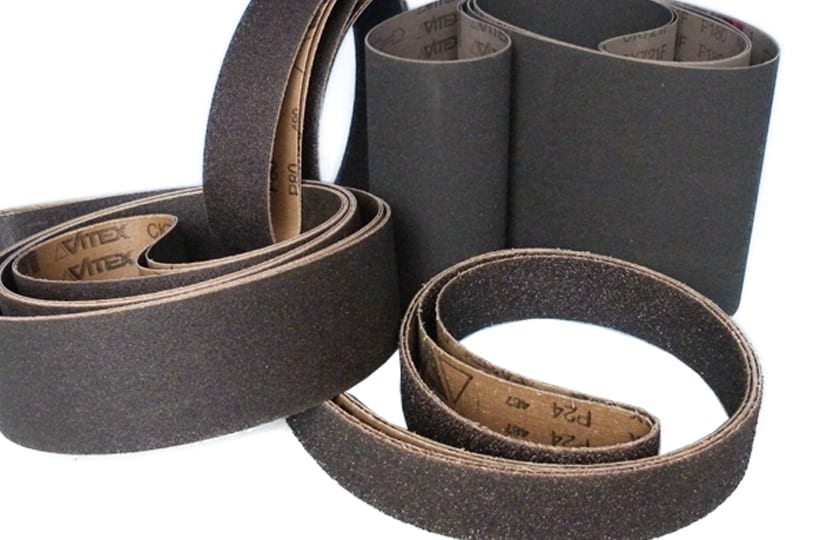Abrasive belts with silicon carbide are produced synthetically and have very sharp edges with low toughness and very high hardness. This means that the sanding belts with silicon carbide abrasive grains achieve a fine and even grinding pattern on the workpieces.
Grinding belts with silicon carbide therefore have a wide range of applications. They are ideally used for processing unalloyed and low-alloy steel, brass, bronze, hardwood, paints/varnishes/fillers, glass/ceramics/porcelain, minerals, rubber and plastics.
- Constant surface quality
The special shape and wear resistance of the silicon carbide abrasive grain ensures a consistently consistent surface quality. These sanding belts are particularly suitable for subsequent polishing processing steps.
- High profitability
The very long service life of sanding belts with silicon carbide makes cost-effective production possible.
- flexibility
By selecting highly flexible carrier materials and the appropriate Picard contact disk, the sanding belt adapts ideally to the workpiece geometry. Tight curves, radii and such difficult workpiece shapes can be machined optimally.
Picard tip: Choosing the right contact disc
The use of sanding belts with ceramic grain should always be done in conjunction with the correct contact wheel. For dry grinding, we recommend our FAPI-KS/V FREQUENCY DAMPED contact wheel, which can achieve up to 40% more removal rate. For wet grinding, we recommend our FAPI-PA FREQUENCY DAMPED contact wheel, which can also be used to achieve an enormous increase in removal rate.

